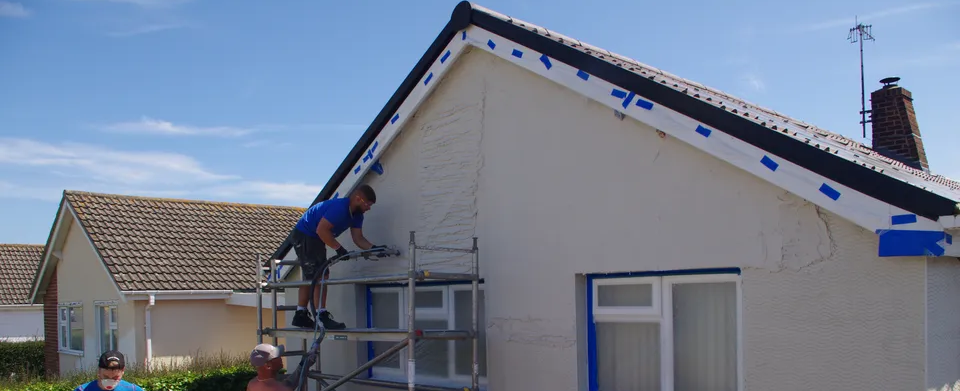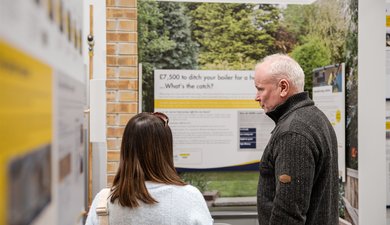Unlocking the potential of low-carbon heating
UK homes are among Europe’s least efficient, contributing around 13% of national emissions and leaving many households in fuel poverty.

The Energy Security & Net Zero Committee's report, highlights the upcoming Warm Homes Plan, set for release in 2025, as a positive step, aiming to retrofit five million homes by 2030. However, it also urges the government to go further, calling for a long-term retrofit program, greater investment, and clearer communication to boost public engagement.

The report identifies a huge opportunity for growth in low-carbon heating, such as heat pumps, which currently serve just 5% of homes - far behind our European peers. Policy changes to reduce electricity costs and improve awareness could accelerate adoption.
The transition to low-carbon heating technologies like heat pumps, presents a major opportunity for carbon reduction and energy savings – if integrated effectively. Considering the heat-loss from the fabric of a building, remains our encouraged first priority, in addition to investing in heat and ventilation solutions, and combining them with renewable and smart technologies. A whole-home approach is always important to deliver a warm, efficient and sustainable home.
Are EPCs fit for purpose?
The report also calls for modernising Energy Performance Certificate(EPC)s, to better reflect the carbon impact of home heating systems. Currently based on running costs, EPCs can unintentionally discourage low-carbon choices.

Reforming them to include both cost and emissions metrics would give homeowners a clearer picture and encourage greener decisions.
Updating the EPC framework offers a quick win for government and industry, improving consumer confidence and aligning incentives with net zero goals.
Closing the Green Skills Gap

The report also identifies the need for a skills boost, with at least 100,000 more trained workers required. A coordinated training strategy and streamlined accreditation is targeted, to ensure quality and restore consumer trust. It can be difficult to understand who to trust with delivering your project – particularly when adopting forward-thinking technologies.
That’s why The Green Register are training thousands of construction professionals from all disciplines of the industry to build better, more sustainable buildings; and that's why consumer champion Which? has created a directory to help you find vetted tradespeople you can trust.
The future of heating - Gas, Electricity or Hydrogen?
A previous plan to ban new oil and LPG boilers by 2026 has been delayed to 2035. Stakeholders urge the government to set a firm 2035 deadline and strengthen schemes like the Clean Heat Market Mechanism to accelerate heat pump adoption; and the Committee recommends early planning for gas network decommissioning.
As the UK explores various heating technologies, the report urges the government to provide timely clarity on the role of hydrogen. While debate continues, a planned consultation in 2025 will help shape future decisions. In the meantime, the Committee recommends focusing investment on proven solutions like heat pumps, while also planning for potential hydrogen use where appropriate.
Overall, the report sees the current moment as a crucial opportunity: to cut emissions, create jobs, and make UK homes warmer, greener, and more affordable.
Help is at hand

The good news, is that our next Eco Workshop on Heat & Energy, is on Saturday 9th August, where expert seminars and 1-2-1s will be focused on this topic to help de-mystify balancing your home’s eco-system.
We're also developing a brand new Retrofit Zone educational exhibit at the NSBRC, which is scheduled to launch at The National Self Build & Renovation Show, on Friday 10th & Saturday 11th October.

...but why wait until then? All the inspiration, information and impartial advice you could need on heat and energy, is at your finger-tips at the NSBRC, and we’re free to visit from Tuesday to Sunday every week.




